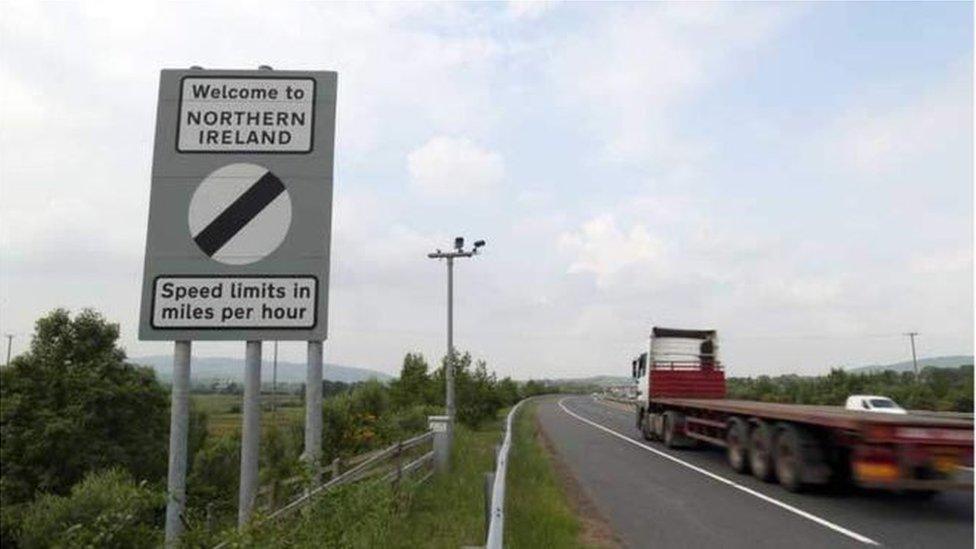Brexit: 'Very real' chance of Irish unity poll if no deal
- Published
- comments
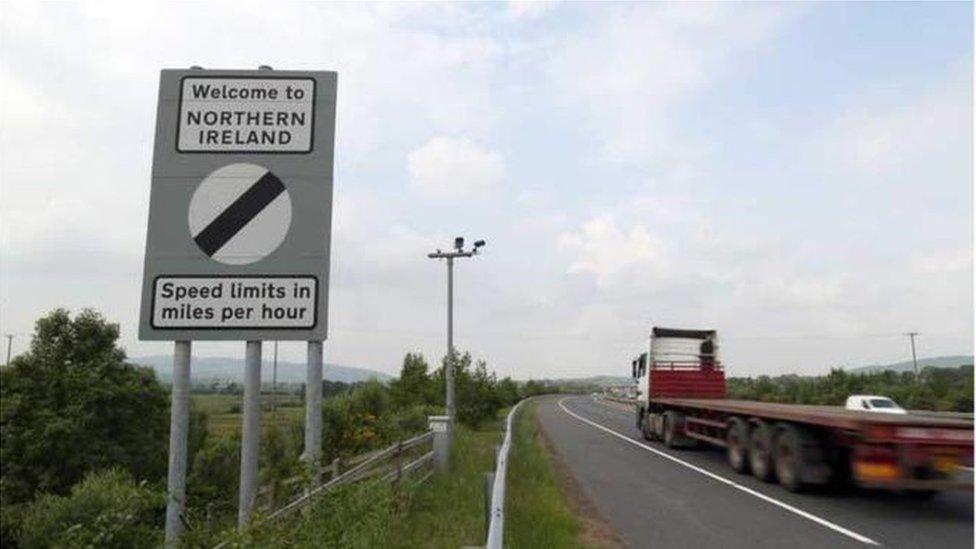
Several cabinet ministers have told the BBC a no-deal Brexit could lead to a vote on Irish unification.
One senior minister said the prospect is "very real" and very much on the prime minister's mind.
A second cabinet minister warned the government risked "sleepwalking into a border poll".
And a third cabinet minister said there was an understanding in government that a vote on unification would be a "realistic possibility" if the UK leaves the EU without a deal next month.
"If we are party to creating an environment of chaos, disruption and uncertainty - that could move the dial", the source said.
All three spoke to the BBC on condition of anonymity.
The conditions for a "border poll" are set out in the Good Friday Agreement.
The UK Secretary of State for Northern Ireland - currently Karen Bradley - has to call a vote if it appears likely there would be a majority for a united Ireland.
'Precious union'
Sinn Fein has called for a vote on Irish unification after Brexit.
The issue was raised this week when the prime minister held talks with Northern Ireland's parties in Belfast.
Downing Street believes the majority of people continue to support the current political settlement - and the PM has pledged to protect the "precious union".
We have heard warnings about the impact of Brexit on the UK before.
Former prime ministers Sir John Major and Tony Blair warned about it before the 2016 EU referendum.
As she tried to drum up support for her original Brexit deal last month, Theresa May warned a no-deal Brexit could strengthen the hand of those wanting Irish unification and Scottish independence.
With some increasingly concerned about the prospect of the UK leaving the EU without a deal on 29 March, concerns about Northern Ireland's future appear to be increasing.
'Dangers are real'
"A no-deal Brexit is the way that's most likely to lead to a border poll and to people questioning the benefits of being in the United Kingdom," one cabinet minister told the BBC.
"The dial hasn't been moved - the dial could be moved in those circumstances."
"The dangers are real," adds a separate senior cabinet minister.
This source believes there is a danger that people without a strong nationalist or unionist background could react badly to a no-deal Brexit - especially if it leads to serious issues at the Irish border - and that could tip the balance.
'Do your homework'
Not everyone agrees.
Another minister said the government had "a lot of get-out-of-jail cards" that could help it avoid a border poll.
When I put some of the concerns raised in cabinet to this person, they accused others of being "remarkably unwilling to do their homework on the issue".
But the source added: "If there really is a horror show… the polling might reflect it".
It's worth pointing out Brexit would not be the only factor if there is to be a border poll; changing demographics would play a significant role too.
My colleague Jayne McCormack has written more about the issue here.
But in the corridors of power at Westminster there is real concern Irish unification will become a significant issue if the UK leaves the EU at the end of March without a deal.
UK Government Spokesperson said: "There has been no change in position.
"It remains the Secretary of State's view that a majority of the people of Northern Ireland continue to support Northern Ireland's place in our precious union.
"The circumstances requiring a border poll - as set out in the 1998 Agreement - are not satisfied."
- Published6 February 2019
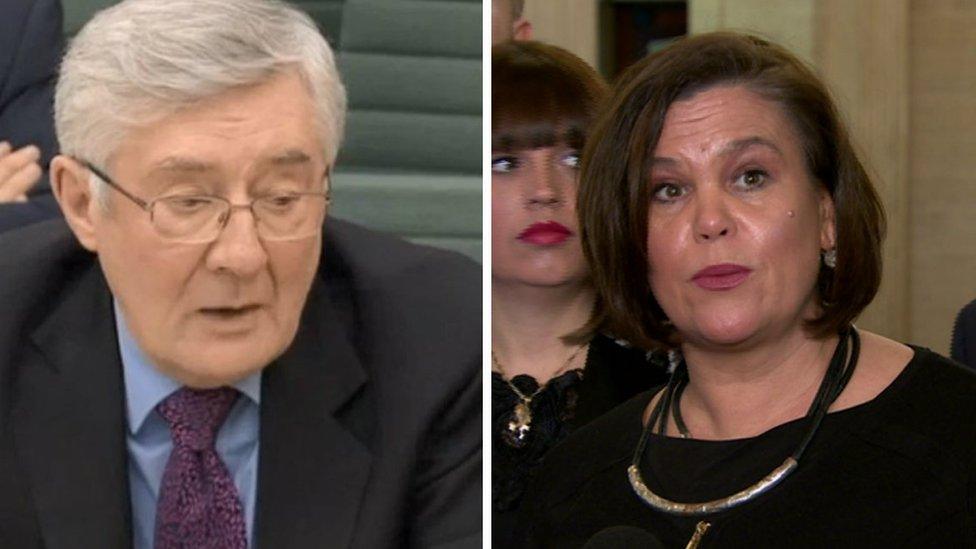
- Published4 October 2019
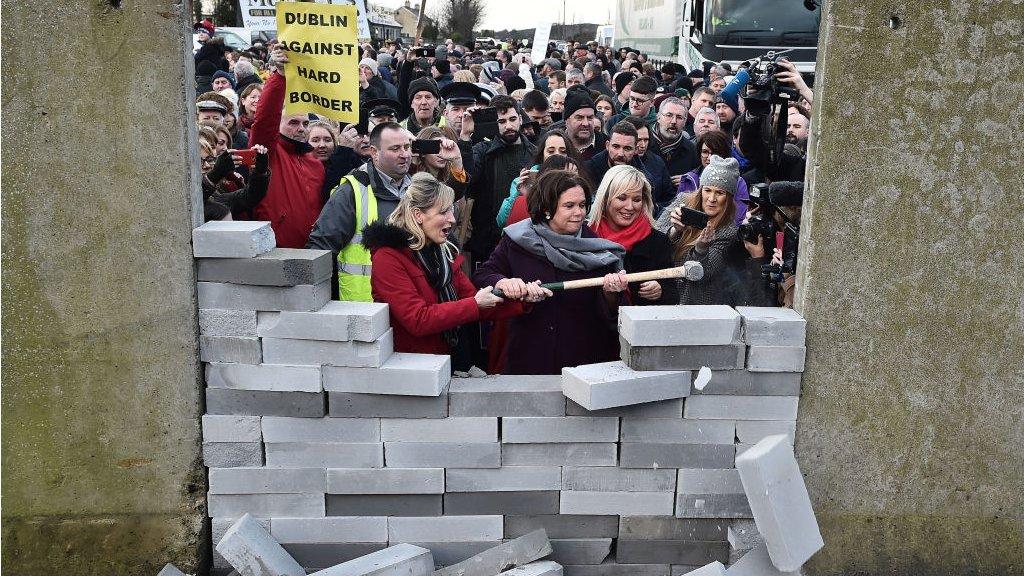
- Published26 January 2019
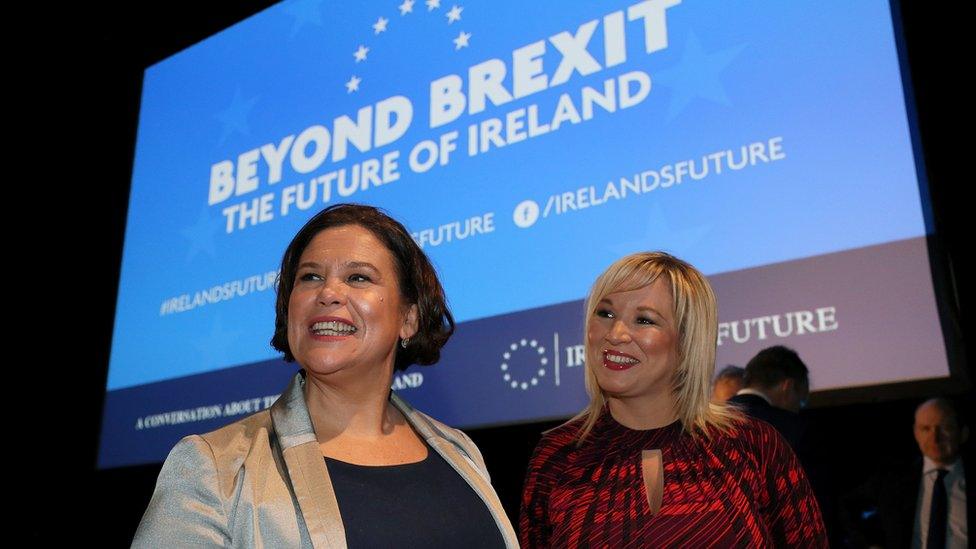
- Published3 September 2018
